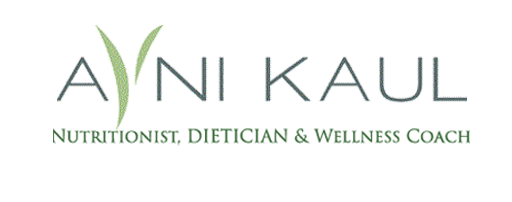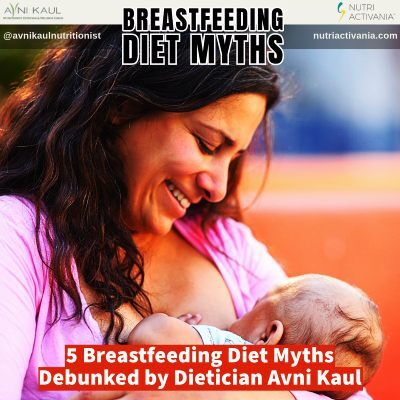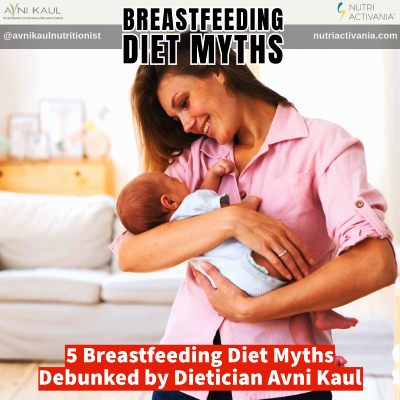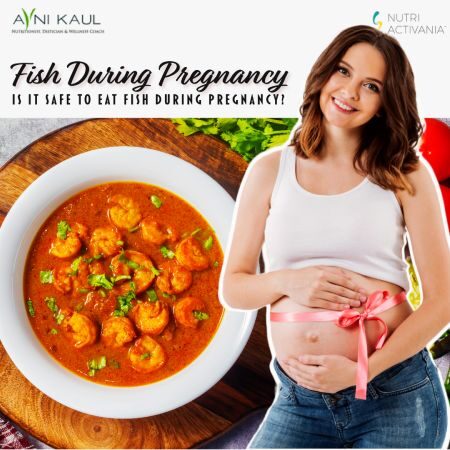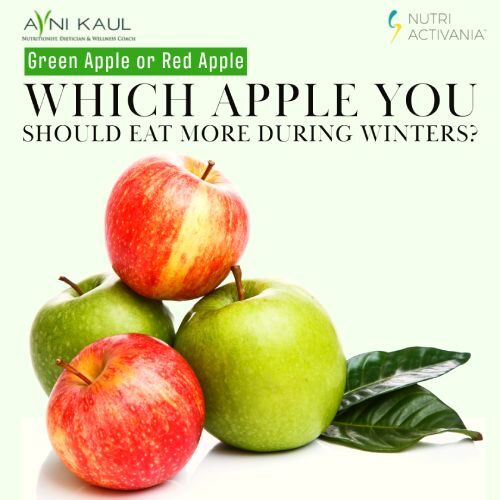Motherhood is a miraculous journey that comes with its own set of challenges and joys. Among these challenges, ensuring proper nutrition while breastfeeding ranks high on the list. There is plenty of advice and myths surrounding the diet of breastfeeding mothers, making it challenging to decipher fact from fiction. India’s leading Dietician for pregnant and lactating mothers, Avni Kaul, breaks 5 myths in this article.
A proper diet is crucial for a breastfeeding mother as it directly affects the quality and quantity of breast milk produced. Foods rich in protein, calcium, iron, iodine, Vitamin D, etc. are essential for the baby’s growth and development.
What are the myths associated with breastfeeding?
Dietician Avni Kaul shares all the myths that have been associated with it and vice versa presenting the facts to check.
Myth 1: Avoid spicy foods while breastfeeding.
Fact: There is no hard and fast rule that spicy food is prohibited while breastfeeding. However, it is often advised that nursing mothers should ideally avoid spicy food for around 40 days after giving birth, as it could potentially lead to constipation.
However, after the initial six weeks, mothers have more flexibility in selecting their diet. Spicy foods primarily impact the taste of breast milk. In case you notice that certain spices cause discomfort to your baby, you might want to consume them in smaller amounts.
Myth 2: Certain foods contribute to milk production
Fact: There is no solid scientific evidence that certain foods like oatmeal, apricots, fennel seeds, bananas, pumpkins, etc. can increase milk production in breastfeeding mothers. While a balanced diet is essential for overall health, no single food guarantees a significant milk supply boost. Adequate hydration, proper breastfeeding techniques, and frequent nursing are more impactful factors in promoting successful breastfeeding.
Myth 3: Say NO to Dairy Products
Fact: The notion that dairy consumption causes colic or tummy troubles for breastfeeding babies has been a persistent myth. While some babies might be sensitive to dairy proteins, it is not a universal truth. If symptoms like blood in stool, colic pain, vomiting, diarrhoea, skin rash, eczema, or hives are observed in babies, then dairy products must be eliminated from the mother’s diet to check if there is any improvement in the baby’s symptoms. Cutting out dairy should be done under medical guidance.
Myth 4: Say NO to Caffeine
Fact: While caffeine does transfer into breast milk, moderate consumption (about 2-3 cups of coffee per day) is generally considered safe for breastfeeding mothers. It is unlikely to harm the baby, but excessive intake might lead to irritability or sleep disturbances, jitteriness, or fussiness.
Mothers should be mindful of their caffeine intake and its potential effects on their baby’s sleep patterns. Consulting a healthcare professional is advisable. Premature and newborns metabolize caffeine at a slower rate than older infants. This means that even a small amount of caffeine from a few cups of coffee can have a noticeable effect on younger babies.
Myth 5: Breastfeeding moms should eat double portions.
Fact: One of the most common misconceptions is that a breastfeeding mother needs to eat double portions to provide nourishment for herself and her baby. However, the truth is that quality triumphs over quantity. While breastfeeding does require extra calories, it is not an excuse for overindulgence.
Focus on nutrient-rich foods like lean proteins, whole grains, fruits, and vegetables. Remember, your baby is tiny, and your body’s efficiency ensures it gets what it needs. Overeating can lead to obesity followed by other complications. Always, consult a doctor for personalized guidance.
As a nursing mother, it is crucial to dispel diet myths with a touch of wisdom and embrace a balanced approach. Nourish your body with a variety of nutrient-rich foods, and remember that each baby is unique. If you have concerns about your diet’s impact on your baby, consult a healthcare professional who can guide you based on your individual needs.
